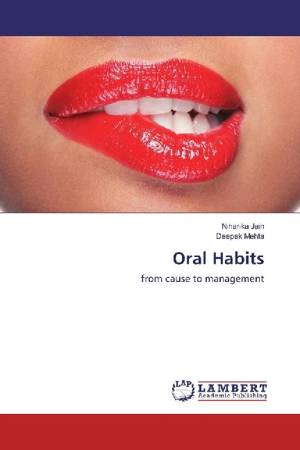
Je cadeautjes zeker op tijd in huis hebben voor de feestdagen? Kom langs in onze winkels en vind het perfecte geschenk!
- Afhalen na 1 uur in een winkel met voorraad
- Gratis thuislevering in België vanaf € 30
- Ruim aanbod met 7 miljoen producten
Je cadeautjes zeker op tijd in huis hebben voor de feestdagen? Kom langs in onze winkels en vind het perfecte geschenk!
- Afhalen na 1 uur in een winkel met voorraad
- Gratis thuislevering in België vanaf € 30
- Ruim aanbod met 7 miljoen producten
Zoeken
€ 49,45
+ 98 punten
Omschrijving
Oral habits in children usually initiate as normal reflex which may be pleasant or unpleasant. Most habits disappear when a child reaches school age.The habit which has been initiated in the early age will attain a fixation if the child is psychologically affected. If these habits are practiced with more frequency, and for longer duration, the muscle imbalance of the growing dental structure will cause malocclusion, facial maldevelopment, and speech. Having an oral habit is not a tragic situation, but needs to be stopped at the appropriate time with an appropriate method to get a good long term result.Attempts must be made to pin point the cause and treat it to break the habit. Since children aquire habits with ease, it is clear that the best way to prevent bad habits is to teach good ones before the others are aquired. If such attempts fail, certain habitbreaking appliances can be constructed by the dentist to be worn by the child to get rid of the habit.
Specificaties
Betrokkenen
- Auteur(s):
- Uitgeverij:
Inhoud
- Aantal bladzijden:
- 124
- Taal:
- Engels
Eigenschappen
- Productcode (EAN):
- 9783659955112
- Uitvoering:
- Paperback
- Afmetingen:
- 150 mm x 220 mm

Alleen bij Standaard Boekhandel
+ 98 punten op je klantenkaart van Standaard Boekhandel
Beoordelingen
We publiceren alleen reviews die voldoen aan de voorwaarden voor reviews. Bekijk onze voorwaarden voor reviews.









